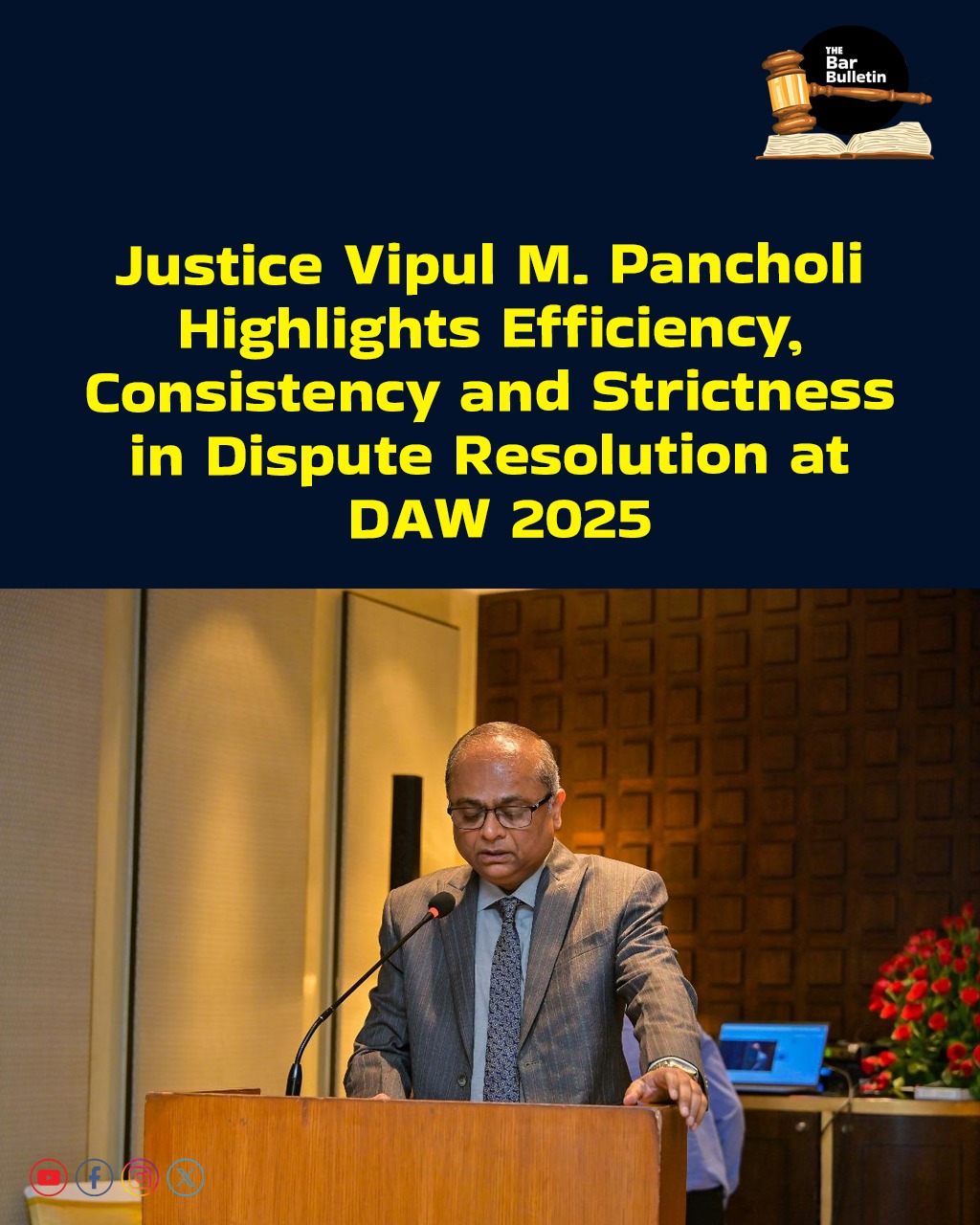New Delhi, September 2025: Speaking at the Delhi Arbitration Weekend 2025 organised by M&Co Legal, Justice Vipul M. Pancholi underscored the three pillars of efficiency, consistency and strictness as essential to strengthening commercial justice in India and the wider region.
Justice Pancholi noted that an efficient and reliable dispute resolution mechanism, coupled with streamlined litigation and swift case disposal, has boosted investor confidence and reinforced India’s pro-business legal environment. Commercial courts, with specialized judges and strict timelines, have emerged as vital instruments in ensuring timely justice.
Reflecting on India’s legal reforms, Justice Pancholi pointed to the Insolvency and Bankruptcy Code (2016) as a transformative step, shifting focus from debtor-friendly regimes to a value-maximisation model that prioritises revival over liquidation.
On arbitration, Justice Pancholi emphasized India’s move toward global best practices through amendments to the Arbitration and Conciliation Act, 1996, which have promoted institutional arbitration, time-bound awards, and limited judicial interference. He highlighted landmark Supreme Court decisions affirming party autonomy, clarifying the centrality of the arbitral seat, and narrowing the grounds for challenging foreign awards under Section 48.
Justice Pancholi also stressed the need for regional harmonisation between India, the UAE, and Oman, observing commonalities in arbitration laws rooted in the UNCITRAL Model Law, but also pointing to divergent practices in interim relief, stamping requirements, and arbitrability. “Judicial cooperation and structured dialogue are essential to reduce friction and build investor confidence across borders,” he said.
Turning to technology, Justice Pancholi acknowledged the transformative role of AI in commercial justice but called for its integration with restraint. He praised innovations such as India’s SUVAS and SUPACE tools, alongside UAE’s bold initiative to use AI in drafting legislation and Oman’s ethical, governance-based approach to AI adoption. “AI must remain human-centred, augmenting rather than replacing the role of judges,” he emphasized.
While recognising persisting challenges such as delays and enforcement hurdles, Justice Pancholi reaffirmed that commercial justice rests on certainty, swiftness and efficiency. He called for expanded training in commercial law, judicial dialogue across jurisdictions, and responsible use of technology.
“India, the UAE and Oman may come from different legal traditions, but all three share a vision of efficient, fair and globally trusted commercial justice,” Justice Pancholi concluded. “Every judgment today carries an impact beyond immediate litigants. Our role as courts is to uphold party autonomy, ensure enforceability, and safeguard investor faith in our legal systems.”
About Justice Vipul M. Pancholi – Born in 1968, Justice Vipul M. Pancholi earned degrees from St. Xavier’s College, Ahmedabad, Gujarat University and Sir L.A. Shah Law College, Ahmedabad, Gujarat University. Justice Pancholi enrolled at the Bar in 1991, after which he began practice before the Gujarat High Court.
Subsequently, Justice Pancholi was appointed as an Assistant Government Pleader and Additional Public Prosecutor, Gujarat High Court, functioning as such for seven years. Later on, Justice Pancholi was elevated as an Additional Judge in 2014, and he became a Permanent Judge in 2016.
Justice Pancholi was then transferred to the Patna High Court where he took oath as a Judge and was appointed to become the Chief Justice in July, 2025. Thereafter, the Supreme Court Collegium recommended Justice Pancholi and he was sworn in as a sitting Judge of the Supreme Court of India on 29-08-2025.



